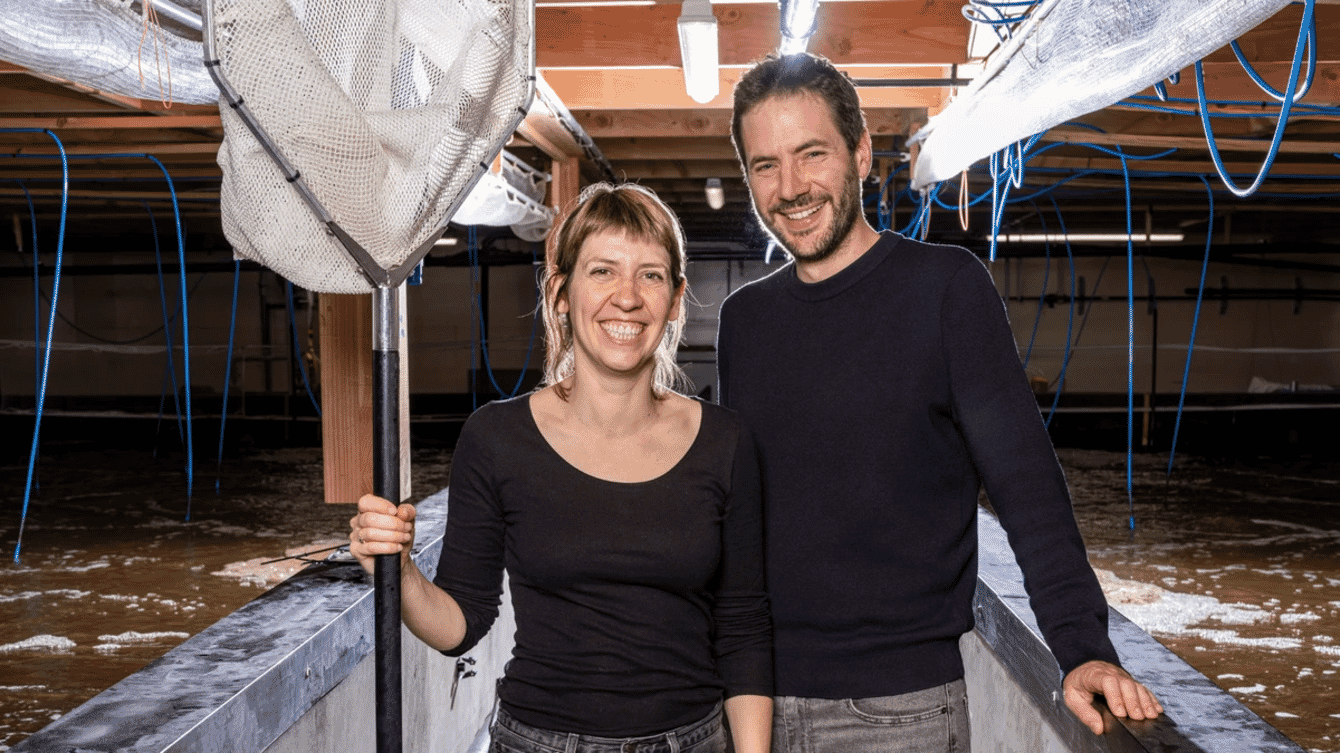
© Lisaqua
The funding round was led by the Révolution Environnementale et Solidaire Fund, which is financed by the Crédit Mutuel Alliance Fédérale’s Social Dividend and managed by Crédit Mutuel Impact. Additional participants included the Belgian fund Noshaq and existing investors such as the agricultural cooperative Le Gouessant and the Mer Invest Fund.
Founded in 2018 by Charlotte Schoelinck and Gabriel Boneu, Lisaqua is now advancing to an industrial scale following the successful operation of its pilot farm in Saint-Herblain, France.
“This fundraising marks a key milestone for Lisaqua. After developing our technology in aquariums, laboratories and at pilot scale, this investment allows us to multiply our impact and make our exceptional shrimp accessible to a wider audience,” said Schoelinck and Boneu in a press release.
This €9 million financing will enable Lisaqua to develop an industrial-scale shrimp farm with a production capacity of 100 tons per year in Monthyon, approximately 50 kilometers north-east of Paris, while continuing its commercial expansion and R&D efforts.
The project is supported by the French government’s “Première Usine” (First plant) program, part of the France 2030 investment plan. The company relies on a multidisciplinary team of 38 people to achieve this scale-up.
“Lisaqua’s technology offers a promising solution contributing to more sustainable food production. This investment perfectly aligns with the strategy of our Révolution Environnementale et Solidaire Fund, financed by Crédit Mutuel Alliance Fédérale’s Social Dividend,” added Sabine Schimel, chief executive of Crédit Mutuel Impact.
Patented farming technology and further growth prospects
Lisaqua’s patented farming process makes it possible to raise shrimp in controlled, land-based tanks close to consumption areas. This technology combines advanced biofiltration systems with predictive farming models to balance environmental preservation and food quality – addressing critical challenges in sustainable food production.
The company’s land-based approach helps protect coastal ecosystems, specifically mangroves, which can be cleared by conventional shrimp farming.
Lisaqua also applies several circular economy techniques to minimise its environmental impact. This includes recovering and reusing waste heat from a local incinerator to warm the tanks, bioconverting effluents and reusing the farm’s water. In terms of quality, Lisaqua’s shrimp are produced without antibiotics or sulfites and are distributed ultra-fresh. Lisaqua already plans to expand its production capacity with the extension of the Monthyon farm and the construction of new sites in France and across Europe.
“Lisaqua embodies our ambition to support innovative, sustainable, and technologically advanced agri-food models. By joining this venture, we affirm our commitment to local and responsible production. The potential establishment of a farm in the Liège region, still under study, represents a strategic opportunity for our territory – fostering synergies around waste heat recovery, foodtech and food sovereignty, in line with Noshaq’s priorities,” said Géraldine Hotterbeex, investment manager at Noshaq.




